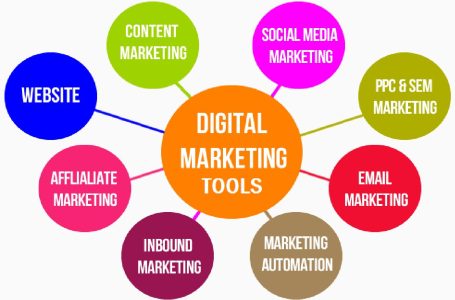Digital marketing technologies are continuously evolving, offering brands, businesses, and organizations powerful new tools and strategies to help them reach their customers and goals. With the ability to create custom experiences and generate highly-tailored content, modern digital marketers are able to craft experiences that are ever more meaningful and effective—whether it be on Vave, Adidas, Twilio, or any other business. As a result, digital marketing is no longer solely an exercise in casting a wide net and hoping something sticks but rather a comprehensive strategy that must consider a wide range of nuances in order to be successful.
The Technologies

To begin with, digital marketing is most effective when the right channels are leveraged that are most likely to reach a given audience. While mainstream social media platforms are essential, brands must also focus on more niche sites and forums dedicated to their particular interests in order to truly target their potential customers. Furthermore, platforms such as Twitter and Instagram also offer powerful tools to help brands “listen” to what their consumers are thinking and saying, allowing them to gain valuable insight into how to optimize their experiences for their desired audiences.
On top of this, digital marketing initiatives should also be mindful of content formats. Videos, images, infographics, slide decks, and web pages all communicate data in different ways, and engaging audiences requires understanding what works best for each message. Additionally, the same content can be implemented in multiple different ways depending on the media being used, making it important to tailor content to the appropriate channel.
Another key consideration for digital marketing lies in personalization and customization. Today’s brands need to use data to create truly customized experiences for their users by understanding who they are, their interests and wants, and providing them with content relevant to them. Additionally, automation tools such as chatbots and artificial intelligence-based marketing platforms are allowing brands to provide customers with experiences that are tailored and personalized to their individual needs.
On top of that, digital marketing also needs to account for different global markets. With the rapid expansion of the internet, brands need to ensure that their content and messages are tailored to global customers’ needs and cultures. This requires understanding language preferences, cultural trends, and even specific regulations that might affect marketing strategies.
The Strategies

Digital marketing is a constantly evolving field of marketing that requires businesses to stay up-to-date on the latest trends and best methods for reaching their customers. When businesses are able to determine and make the best use of digital marketing strategies, they can make tremendous gains in terms of customer engagement, brand recognition, and ultimately, sales. This can make a huge difference to the success of any business, irrespective of the size and nature of its operations.
One of the most important strategies in digital marketing revolves around understanding and utilizing keywords in a way that allows your business to better reach its target audience. This involves researching popular, relevant keywords based on the topic at hand, and optimizing your website and other marketing platforms around those words. This allows search engine robots to better detect your content and show it to users who are most likely to be interested in it.
Social media is another area of digital marketing that is crucial for business success. Social media platforms such as Twitter, Facebook, and Instagram can present a great opportunity for businesses to establish a presence and reach potential customers. By cultivating conversations between customers and brands and launching targeted campaigns, businesses can drive interested people to their websites, blog, or landing page. Additionally, social media can be used to conduct customer surveys and ask questions to gain useful insights.
Content creation is an important factor in any digital marketing strategy. Creating content that is engaging, interesting, and convincing can help businesses to connect with their customers in more profound ways, leading to conversions and increased loyalty to the brand. Content marketing allows the company to showcase the benefits of the product or service, provide news and updates, and create compelling stories to grab the attention of prospects.
Finally, email marketing remains a valuable tool in digital marketing strategies. Email campaigns can be used to target specific customers with tailored emails featuring the latest offers, discounts, and news. This type of customization leads to higher engagement and a better customer experience, helping to increase conversions. Furthermore, emails can include personalized content and optimized links to help customers navigate to the desired web pages more easily.
Successful digital marketing strategies can spell the difference between survival and failure for businesses of all sizes. Developing and deploying a comprehensive plan of action that covers all the nuances of digital marketing can be challenging, but, if done correctly, it can prove to be immensely rewarding. The key is to establish a clear understanding of your target audience, implement a blend of strategies, and measure the results of those strategies to revise and improve them. By conforming to these principles, businesses can create and maintain powerful digital marketing strategies.
To sum it up, digital marketing is an increasingly complex field, with new channels and tools continuously emerging. In order to deliver successful campaigns, brands must understand the nuances of digital marketing and how to leverage different tools effectively. With the right strategies and tools in place, digital marketing can be a powerful tool to reach and engage a global audience.





